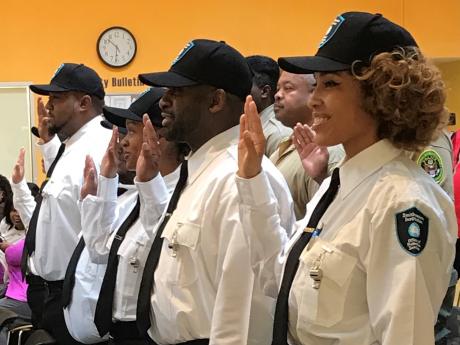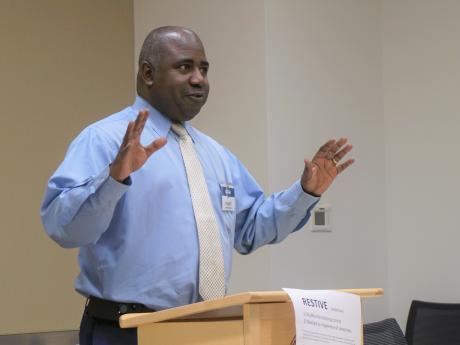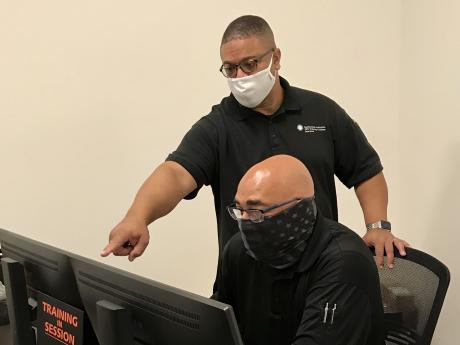OPS strives to cultivate a highly dedicated and successful workforce. OPS wants to hire, develop, and retain the best qualified and well-suited professionals in the industry. To do this, we provide career and leadership development and training starting from entry-level positions through senior ranks. OPS also fosters an environment that is engaging and communicative so that employees feel heard and function well as a team. Cultivating employees to grow in their jobs at the Smithsonian is one of our top priorities.
OPS is committed to staff development through a robust training program that ensures employees have the skills and knowledge necessary to best perform their duties for the Smithsonian Institution (SI). Staff development and training opportunities include recertification courses for Security Guards and Zoo Police Officers, skills development courses, as well as other training opportunities available throughout the year.
Training Academy
The OPS Training Academy conducts all training for the Smithsonian Institution’s Security Officers and Zoo Police, which are responsible for the safety and security of SI museums, research centers, and the National Zoo. Training is conducted to ensure all staff are fully prepared to manage a number of situations that may result in emergency or security events. The staff conducts hundreds of hours of training throughout the year. This includes basic security training, firearms, CPR, First Aid, emergency responses, x-ray, various use of force weapons (ASP-baton/OC spray), and customer service.
Leadership Series
Every month OPS Leadership hosts a training session on a specific topic. Past topics have included Emotional Intelligence, 10 Keys to Leadership During the Pandemic, Organized Chaos, How to Lead Tough Conversations, Planning and Managing Large Scale Events, Domestic Violence in the Workplace, Authentic Leadership, and Everyone Is Angry: Resilience.
Rotational Assignment Program (RAP)
OPS participates in the annual Smithsonian cross-training Rotational Assignment Program (RAP), which provides developmental/cross-training assignments that give additional opportunities for employees to broaden their skills, gain knowledge, and enhance their personal and professional growth. Many employees who participate in RAP have successfully found new career opportunities.
Conferences
In order to remain current in the many and varied professions found in OPS, employees often participate in conferences, meetings, and presentations from national and international organizations and associations. Annually, OPS hosts the National Conference on Cultural Property Protection that gives employees the opportunity to learn firsthand from museums and cultural properties around the United States and the world. The Smithsonian's heritage preservation is a core strength with exemplary skills in security, facilities construction and management, risk assessment, and collections stewardship.
Career Development Program
OPS has also created several professional development initiatives to assist employees in their career progression. This includes:
- Career Development Guide (CDG): Published to enhance the performance and overall impact of OPS employees, it provides opportunities for professional growth and guides intrinsically and internally motivated employees by highlighting examples of self-development opportunities. The CDG includes chapters on career progression for OPS officers and for Physical Security staff. These chapters cover core competencies and technical competencies, occupational series, evolution of skills, professional development by position, and professional development opportunities. The goal is to continually add chapters to this guide so that all departments within OPS are included.
- Mentorship Program: This was developed to provide three different mentoring methods to OPS staff. The programs consist of panel discussions, a development program for mentors, and traditional mentoring, all with the goals to promote, teach, and provide knowledge to employees in order to support planning their career. These programs include all OPS employees, from grades GS4-13.
- Communication and Presentation (CAP) Club: Similar to Toastmasters International, a nonprofit organization with the purpose of promoting communication and public speaking, the CAP Club provides OPS staff the opportunity to learn how to effectively communicate with internal and external customers.






